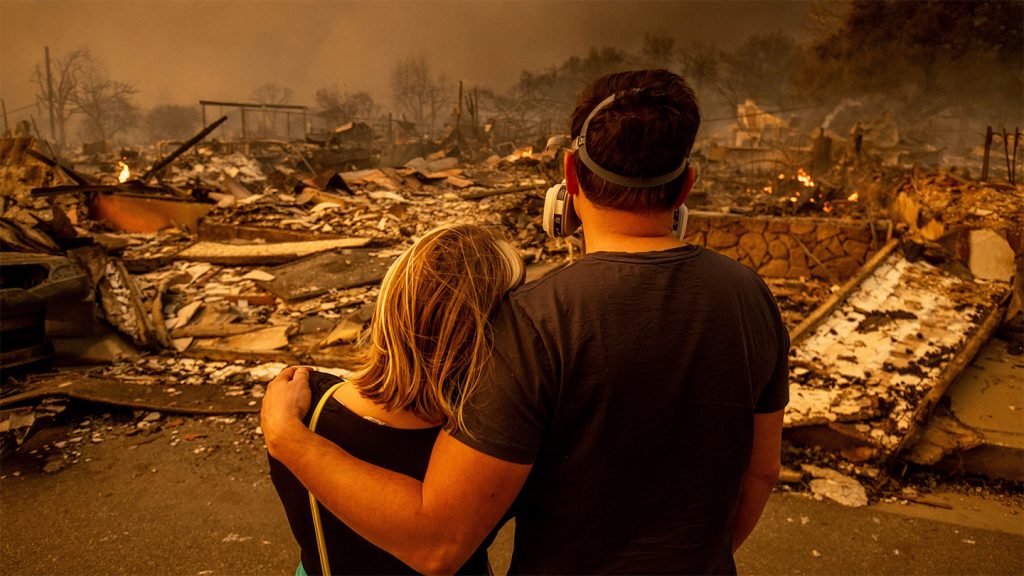The devastating wildfires in Los Angeles have left a trail of destruction, claiming lives, homes, and businesses. Beyond the immediate physical damage, the emotional trauma experienced by survivors presents a significant and long-term challenge. While firefighters gain control over the flames, residents begin the arduous process of grappling with loss, uncertainty, and the daunting task of rebuilding their lives. Addressing the mental health needs of survivors is paramount, but experts emphasize the need to go beyond traditional mental health care. Economic hardships, such as job loss and the financial burden of home repairs, contribute significantly to ongoing psychological distress. A comprehensive approach to recovery must consider these broader socioeconomic factors to provide effective support.
The impact of the fires is not evenly distributed across the population. Latino communities in Los Angeles have been disproportionately affected, experiencing higher rates of displacement, job loss, and economic instability. Many Latina women employed as domestic workers in the affluent areas ravaged by the fires have lost their livelihoods, their connections to the families they served, and, in some cases, their own homes. This highlights the vulnerability of specific demographic groups and the need for targeted interventions to address their unique challenges. Understanding the social and economic context of affected communities is essential for providing equitable and effective support during the recovery process.
Immediate recovery efforts should prioritize access to mental health services for survivors, including first responders. Untreated post-traumatic stress disorder (PTSD) can have cascading negative consequences, including substance abuse, chronic health problems, and self-harm. Minimizing additional stressors, such as allowing survivors to visit their damaged homes and neighborhoods, can also play a crucial role in alleviating immediate psychological distress. While the immediate focus is often on clearing debris and restoring infrastructure, acknowledging the emotional significance of these spaces for survivors can facilitate a sense of closure and community support. Extending aid beyond the typical few months offered by government agencies is also vital to allow for adequate mental, emotional, and physical rebuilding.
Direct exposure to the disaster, such as experiencing evacuation, significantly increases the risk of developing mental health disorders, particularly PTSD, depression, and anxiety. Studies have shown a correlation between material and psychological impacts following disasters and the likelihood of long-term PTSD. Monitoring evacuees and providing them with access to mental health resources is crucial for mitigating the long-term effects of trauma. Even indirect exposure, such as living in areas affected by heavy smoke, can contribute to psychological distress. Research suggests that individuals who experience primarily psychological impacts, even without significant material losses, are at higher risk of developing anxiety and depression.
Indirect impacts, such as job loss and financial strain, can have a profound and lasting effect on mental well-being. Studies have shown that financial hardship is a major predictor of psychological distress following a disaster, even among those who did not directly experience the event. Families whose homes are damaged but not destroyed often face prolonged uncertainty and financial burdens as they navigate the complexities of repairs. This “gray zone” can take a significant toll on mental health, highlighting the need for support beyond immediate relief efforts.
Socioeconomic status plays a significant role in vulnerability to mental health issues post-disaster. Lower-income individuals often face greater challenges accessing resources, securing temporary housing, and recovering from job loss. These accumulated stressors can exacerbate psychological distress and impede the recovery process. The disparities in housing resilience also contribute to the disproportionate impact on lower-income communities. Mobile homes and rental properties are more vulnerable to fire damage than owner-occupied homes, further highlighting the need for equitable housing policies and post-disaster support. Additionally, post-disaster gentrification can displace lower-income residents, further compounding the challenges they face. Prioritizing affordable housing and providing resources to prevent displacement is crucial for ensuring an equitable recovery.
The displacement caused by the fires disrupts social networks and community cohesion, which are vital for both emotional support and access to information. The fragmentation of communities can lead to long-term isolation and hinder the recovery process. Creative solutions, such as community-led resource centers, can help reconnect displaced individuals with essential services and support networks. Fostering a sense of community and providing ongoing support is essential for rebuilding social connections and promoting long-term well-being in the aftermath of a disaster.


